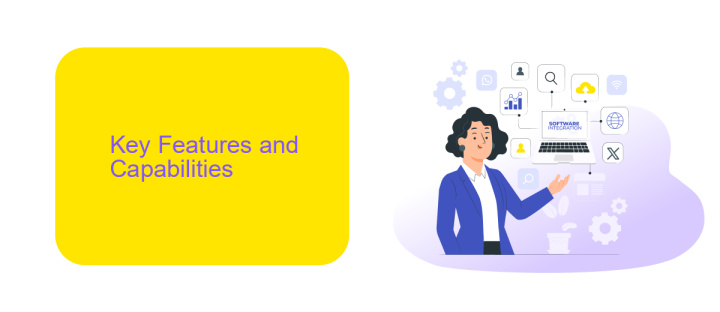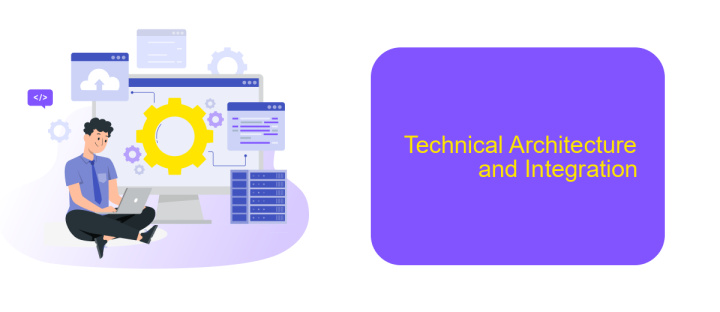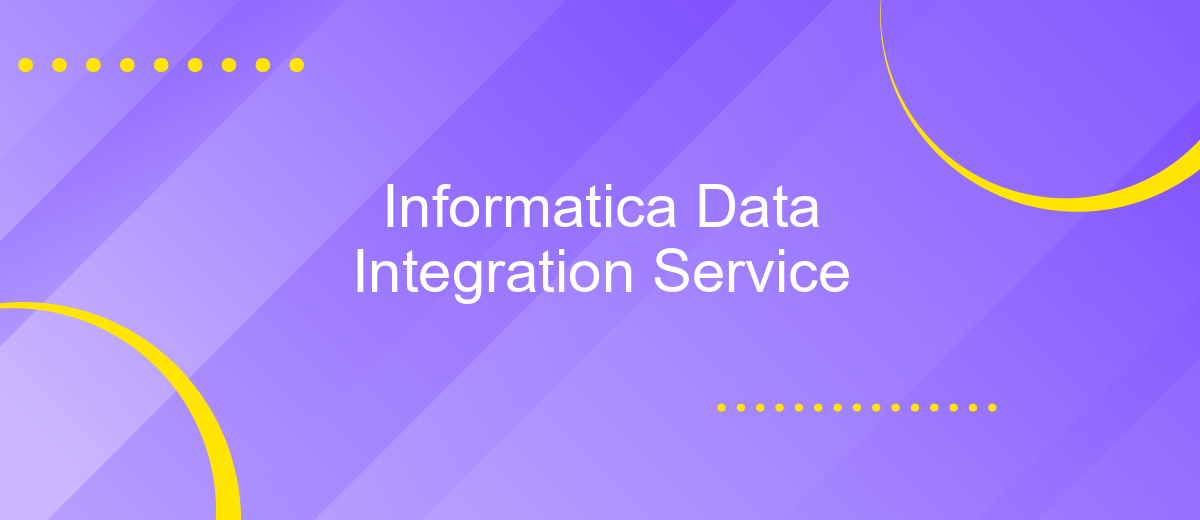Informatica Data Integration Service
Informatica Data Integration Service is a powerful tool designed to streamline the process of integrating and managing data across various sources. It enables organizations to efficiently handle large volumes of data, ensuring accuracy and consistency. By leveraging advanced features and seamless integration capabilities, Informatica Data Integration Service helps businesses make informed decisions and drive operational excellence.
Introduction
Informatica Data Integration Service is a powerful tool designed to facilitate seamless data integration across various platforms and applications. It enables organizations to efficiently manage, transform, and integrate data from diverse sources, ensuring data consistency and accuracy. By leveraging this service, businesses can achieve better data governance, streamline operations, and make more informed decisions.
- Automated data integration processes
- Support for a wide range of data sources
- Real-time data synchronization
- Advanced data transformation capabilities
- Scalability to handle large volumes of data
For those looking to enhance their data integration efforts, tools like ApiX-Drive can be invaluable. ApiX-Drive provides a user-friendly interface for setting up integrations between various applications and services without the need for extensive technical knowledge. By combining the robust features of Informatica Data Integration Service with the ease of use offered by ApiX-Drive, organizations can achieve a more efficient and effective data integration strategy.
Key Features and Capabilities

Informatica Data Integration Service offers a robust suite of features designed to streamline data management and integration processes. It supports a wide range of data sources, enabling seamless extraction, transformation, and loading (ETL) of data. The service ensures high performance and scalability, making it suitable for enterprises of all sizes. Advanced data profiling and cleansing capabilities help maintain data quality, while built-in monitoring and alerting systems ensure operational efficiency. With support for real-time data integration, businesses can make timely, data-driven decisions.
Additionally, Informatica Data Integration Service provides extensive connectivity options, including APIs and pre-built connectors, facilitating easy integration with various applications and platforms. For instance, using services like ApiX-Drive, users can automate data flows between disparate systems without the need for complex coding. The service also offers robust security features, including data encryption and access controls, to safeguard sensitive information. With its user-friendly interface and comprehensive documentation, Informatica Data Integration Service empowers organizations to effectively manage their data integration needs.
Benefits and Use Cases

Informatica Data Integration Service provides a robust platform for seamless data integration, ensuring that businesses can efficiently manage and utilize their data assets. Its user-friendly interface and powerful features make it a go-to solution for organizations aiming to streamline their data processes and enhance decision-making capabilities.
- Enhanced Data Quality: The service ensures high data quality by providing tools for data cleansing, transformation, and validation.
- Scalability: It can handle large volumes of data, making it suitable for enterprises of all sizes.
- Real-Time Integration: Informatica supports real-time data integration, enabling businesses to make timely and informed decisions.
- API Integration: With services like ApiX-Drive, users can easily set up and manage API integrations, further simplifying the data integration process.
- Comprehensive Data Management: The platform offers end-to-end data management capabilities, from data ingestion to data delivery.
Overall, Informatica Data Integration Service is ideal for organizations looking to enhance their data integration strategies. By leveraging its advanced features and integrating with tools like ApiX-Drive, businesses can achieve greater efficiency, accuracy, and insight in their data operations.
Technical Architecture and Integration

Informatica Data Integration Service provides a robust platform for data integration, ensuring seamless data flow across various systems and applications. The architecture is designed to handle complex data integration tasks, offering scalability and high performance.
The core components of the architecture include the Integration Service, Repository Service, and the Data Integration Hub. These components work in tandem to ensure data is accurately transformed, cleansed, and loaded into target systems. Informatica leverages a metadata-driven approach, which enhances reusability and simplifies maintenance.
- Integration Service: Executes data integration workflows and manages data transformation processes.
- Repository Service: Manages metadata and ensures consistency across various integration tasks.
- Data Integration Hub: Facilitates centralized data integration, providing a single point of control.
For additional integration capabilities, services like ApiX-Drive can be utilized. ApiX-Drive offers a user-friendly interface for setting up integrations between various cloud applications and services, further extending the functionality of Informatica Data Integration Service. This ensures that businesses can achieve comprehensive data integration with minimal effort.
- Automate the work of an online store or landing
- Empower through integration
- Don't spend money on programmers and integrators
- Save time by automating routine tasks
Pricing and Licensing
Informatica Data Integration Service offers a flexible pricing model designed to accommodate various business needs. The pricing is typically based on the number of users, data volumes, and specific functionalities required. This subscription-based model ensures that organizations only pay for what they use, making it a cost-effective solution for both small and large enterprises. Informatica also provides a free trial period, allowing businesses to evaluate the service before committing to a subscription plan.
The licensing options for Informatica Data Integration Service are equally adaptable, offering both on-premises and cloud-based solutions. This flexibility allows organizations to choose the deployment model that best fits their infrastructure and compliance requirements. Additionally, Informatica supports seamless integration with third-party services like ApiX-Drive, which can further streamline data workflows and enhance overall efficiency. With comprehensive support and regular updates, Informatica ensures that its data integration services remain robust and up-to-date, providing excellent value for money.
FAQ
What is Informatica Data Integration Service?
How does Informatica Data Integration Service handle large data volumes?
Can Informatica Data Integration Service integrate with cloud-based data sources?
What are some common use cases for Informatica Data Integration Service?
How can I automate data integration tasks in Informatica Data Integration Service?
Apix-Drive will help optimize business processes, save you from a lot of routine tasks and unnecessary costs for automation, attracting additional specialists. Try setting up a free test connection with ApiX-Drive and see for yourself. Now you have to think about where to invest the freed time and money!


